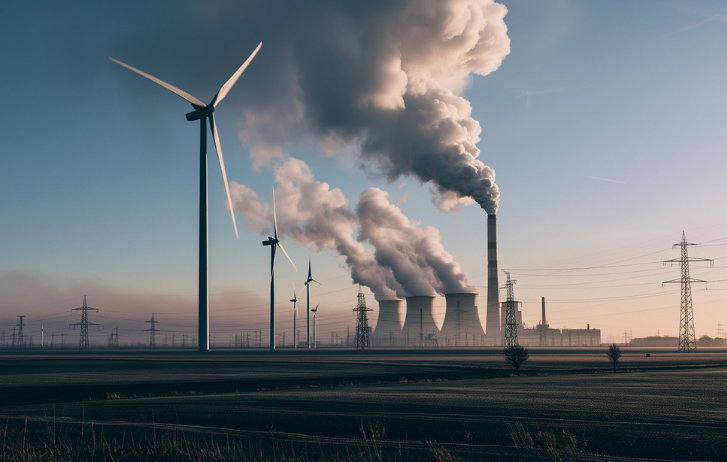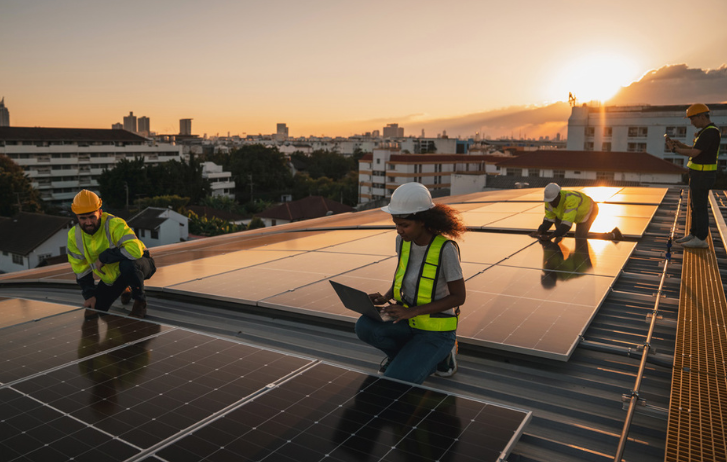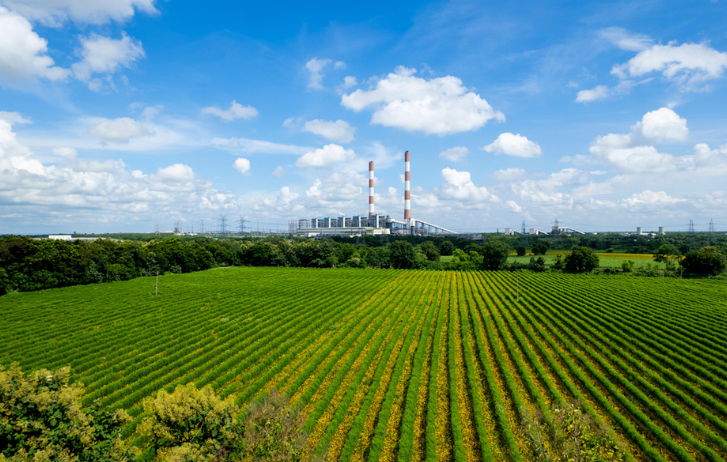
How Asia Pacific Is Leading The Charge In Sustainability
By Kawal Preet | November 7, 2024
APAC businesses are embracing ESG practices and pioneering sustainable solutions for the environment. From alternative energy trends to climate tech, what are the key trends driving climate action in Asia today?
- Many Asia Pacific nations are at the front line of climate change, from rising sea levels and air pollution to extreme weather events.
- Future-forward businesses in APAC are spearheading sustainability practices, and laying out a roadmap to carbon neutrality.
- Can solutions founded here in APAC help drive global sustainability action? Kawal Preet explores areas for regional transformation.
Living in Asia, it’s easy for me to see how real climate change is - all I need to do is look outside.
Our summers are getting warmer. Heat waves in Southeast Asia peaked at 53°C in April 2024. Sea levels are rising rapidly, threatening the lives of millions of people residing near coastlines. Weather changes are also getting more extreme; it’s becoming harder to predict when the monsoon season will begin and end.
Left unaddressed, climate issues can even destabilize APAC economies, putting 63% of the region’s gross domestic product (GDP), equivalent to US$19.5 trillion, at risk.
As a region both frequently impacted by environmental factors and a major contributor to global carbon emissions, APAC has very real stakes in the climate agenda. After all, over half the world’s population lives here. But these pressure points also motivate Asia Pacific to lead the charge in sustainability, leveraging a dynamic culture of innovation to supercharge climate progress.
Sustainability trends in Asia Pacific
While APAC is increasingly at risk, our region is also exacerbating the problem. Our share of global emissions is expected to stay at 60% until 2050, as a result of the rapid growth of APAC’s urban centers, as well as the region’s position as a manufacturing hub.
The good news is that business leaders in APAC are taking action to help avert the climate crisis. Sustainability in APAC is quickly gaining momentum as more investors and asset managers recognize climate as a source of material risks and opportunities. Environmental, social, and governance (ESG) practices are also gaining significant traction across the region, with companies aligning themselves with global sustainability standards.
In fact, APAC companies fare better in reporting climate-related metrics compared to their North American counterparts. APAC businesses are also stepping forward with net-zero and carbon neutral commitments.
This means less reliance on fossil fuels, and the logistics industry at the forefront of this needs to transform. At FedEx, we started introducing zero-tailpipe emissions vehicles across APAC in 2016. Today, we’re continuing to make inroads in deploying lower-emissions fleets. In China, electric vehicles grew to represent 20% of the country’s fleet of pick-up and delivery vehicles in fiscal year 2024.
This is part of our broader global sustainability goal of reaching carbon-neutral operations by 2040. It’s a sustainability strategy built across multiple fronts, including adopting renewable energy, reducing jet fuel consumption, and integrating lower-carbon technologies across our global operations.
APAC’s strengths fuel climate tech and financing
There are a lot more reasons to be bullish when it comes to sustainable businesses in Asia. Regional traits or initiatives that have helped us build powerhouse economies - like low taxes, cost-effective labor, leadership in tech and digital-first thinking – can also catalyze the growth of climate tech, research, and sustainability-focused enterprises.
Take alternative energy. We are seeing significant alternative energy growth across the Asia Pacific region. China, in particular, has made significant investments in solar and wind power – an essential step given that they are the largest contributor to Asia Pacific’s emissions.
Carbon credits issued by Asia Pacific nations have also risen significantly since 2014. Countries with large carbon footprints, such as China, Australia, and Indonesia, are leading the charge in this area.
Meanwhile, Japan is channeling resources into climate financing and clean energy technology. Singapore and Hong Kong, the financial hubs of the region, are positioning themselves as the world’s go-to centers for climate investment.
What underpins these sustainability trends is Asia Pacific’s strong economic potential, innovation sector capabilities, and industrial capacity. If APAC market leaders like China and Singapore harness these strengths for ESG adoption and sustainable business growth, the region can double down on impact-driven work in climate and energy.
Addressing tough carbon challenges
Decarbonization is a goal that all governments and corporations are working towards. To accelerate the science behind scalable solutions that permanently capture and store carbon, FedEx committed US$100 million to establish the Yale Center for Natural Carbon Capture. Since 2021, the center has been funding research projects related to carbon capture, use, and storage (CCUS), especially those that could reduce gigatons of CO2 per year.
Encouragingly, APAC is in a good position to take the lead in carbon capture, as more than 60% of global carbon reduction from CCUS could come from the region.
Harnessing APAC’s potential to lead climate action
Asia Pacific's potential to become a pioneer in climate mitigation is undeniable. In many ways, the odds are stacked in our favor. The region's economic dynamism, technological innovation, and commitment to climate action all point to an ability to lead the charge in creating a more sustainable future for all.
But there is still some way to go. After all, climate change is a global problem that requires global solutions. APAC countries must work together, as well as with global counterparts, to share best practices, coordinate policies, and mobilize resources to effectively address climate change. This may also mean leveraging on the strength of trade bloc relationships and tapping trade partners to collaborate on not just economic growth, but climate action as well.
This wave of sustainability is already transforming industries. At FedEx, we recognize that our customers are not just demanding faster, more efficient logistics solutions; they also want them to be more sustainable. Sustainability is no longer optional: it’s central to business strategy, longevity, and long-term transformation.
SHARE THIS STORY
- Generative AI: A New Frontier
- How To Make Freight Shipments Work For Your Small Business
- What’s So Dangerous About Coconuts? Your Guide To Dangerous Goods Logistics
- The Rise Of Intra-Asia Trade: Opportunities In The China-Southeast Asia Corridor
- How To Ship A Giant Panda
- Where Do Old Planes Go When They Retire?
Sign up now and save on your shipping rates!
Sign up now and earn discounts by shipping instantly with FedEx Ship ManagerTM at fedex.com.
Recommended For You

4 Steps To Building A Sustainable Supply Chain
To create business advantage and build a greener future SMEs and businesses are identifying ways to make their supply chain networks more sustainable.
Read More
A New And Sustainable Future At FedEx
As companies move towards sustainable business practices, FedEx APAC President Kawal Preet discusses ESG initiatives in Asia Pacific.
Read More
Supporting Natural Carbon Capture Solutions
What is carbon capture and how can it help the planet to tackle climate change?
Read More




